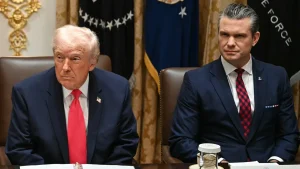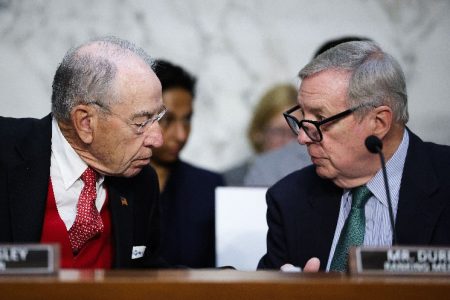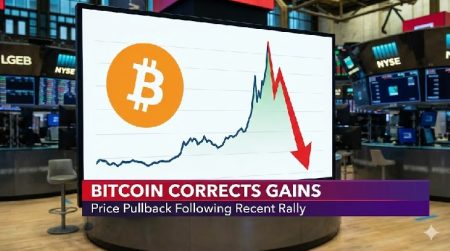US and UK Launch Historic Task Force to Revolutionize Financial Cooperation
New Bilateral Initiative Promises to Transform Capital Markets and Cryptocurrency Regulation
In a significant development for global financial markets, the United States and United Kingdom have announced the formation of a groundbreaking joint task force dedicated to enhancing cooperation on capital markets and cryptocurrency regulation. This landmark initiative, unveiled during President Donald Trump’s recent state visit to the United Kingdom, represents a major step forward in strengthening the special relationship between these two financial powerhouses.
The announcement comes at a critical juncture as both nations navigate the rapidly evolving landscape of digital assets and seek to maintain their positions as leading global financial centers. Financial experts view this collaboration as a strategic response to the growing influence of other financial hubs and the need for coordinated regulatory approaches in an increasingly interconnected global economy.
Strategic Timing and High-Level Support Signal Commitment to Financial Innovation
The timing of this announcement during President Trump’s state visit underscores the high-level political support behind the initiative. Treasury officials from both countries have been working behind the scenes for months to develop the framework for this collaboration, which aims to create more seamless financial markets while establishing appropriate guardrails for emerging technologies.
“This task force represents our shared commitment to fostering innovation while protecting investors and maintaining market integrity,” said U.S. Treasury Secretary Janet Yellen in a joint statement with her British counterpart. “By combining our expertise and resources, we can develop more effective approaches to regulating cryptocurrency markets while supporting responsible growth in this sector.”
The UK’s Chancellor of the Exchequer emphasized that the initiative would help both nations “stay at the cutting edge of financial innovation” while ensuring appropriate consumer protections remain in place. Financial industry observers note that the announcement reflects a maturing approach to cryptocurrency regulation, moving beyond early skepticism toward a more nuanced understanding of blockchain technology’s potential benefits and risks.
Harmonizing Regulatory Frameworks to Boost Cross-Border Investment
A primary objective of the new task force will be to identify and address regulatory inconsistencies that currently impede cross-border investment and financial service provision. The disparate approaches to cryptocurrency regulation have created significant challenges for companies operating in both markets, leading to inefficiencies and potentially pushing innovation offshore to jurisdictions with more coherent regulatory frameworks.
The task force will establish working groups focused on specific areas including securities offerings, market infrastructure, and digital asset regulation. These groups will be tasked with developing recommendations for regulatory harmonization that could significantly reduce compliance costs for financial institutions while maintaining robust investor protections.
“Regulatory fragmentation has been a major obstacle to efficient capital markets,” explained Sarah Johnson, director of the Global Financial Markets Association. “This initiative could create a blueprint for how major financial centers can work together to develop compatible rules without sacrificing their regulatory sovereignty.”
Industry stakeholders have responded positively to the announcement, with many highlighting the potential for reduced compliance costs and greater certainty for businesses operating across the Atlantic. The initiative also comes as both countries seek to position themselves as cryptocurrency innovation hubs while addressing concerns about investor protection and financial stability.
Cryptocurrency Focus Reflects Growing Institutional Adoption
The prominent mention of cryptocurrency cooperation in the announcement reflects the growing institutional adoption of digital assets and the recognition of their importance to future financial systems. Both the U.S. and UK have witnessed significant growth in cryptocurrency markets, with major financial institutions increasingly offering digital asset services to their clients.
“The explicit focus on cryptocurrency cooperation is particularly noteworthy,” said Michael Chen, research director at the Blockchain Policy Institute. “It signals that both governments recognize digital assets as a permanent feature of the financial landscape rather than a passing trend.”
The task force will reportedly examine issues including the regulation of cryptocurrency exchanges, approaches to digital asset securities, stablecoin oversight, and the potential development of central bank digital currencies. These areas represent some of the most challenging regulatory questions facing financial authorities globally, with significant implications for financial stability, consumer protection, and national security.
Financial technology firms have welcomed the initiative as a potential catalyst for regulatory clarity in an area often characterized by uncertainty. “The lack of consistent regulatory approaches has been a significant barrier to innovation in the cryptocurrency space,” noted Emma Williams, CEO of London-based crypto exchange BlockStream. “A coordinated U.S.-UK approach could provide the clarity needed for responsible growth in this sector.”
Broader Implications for Global Financial Governance
The establishment of this bilateral task force may have far-reaching implications beyond the immediate U.S.-UK relationship. Financial policy experts suggest it could serve as a model for similar collaborations between other major economies and potentially influence global standard-setting bodies like the Financial Stability Board and the International Organization of Securities Commissions.
“What we’re seeing is the emergence of a new approach to international financial cooperation,” observed Professor Robert Thompson of Georgetown University Law Center. “Rather than relying solely on multilateral institutions, major financial centers are increasingly working together in smaller groups to develop compatible regulatory approaches that can then influence global standards.”
This approach reflects a pragmatic recognition that achieving consensus among all nations on complex financial regulations is increasingly difficult. By starting with bilateral cooperation between countries with similar market structures and legal traditions, the U.S. and UK may be able to make more rapid progress on addressing regulatory challenges posed by emerging technologies.
The task force announcement also comes amid growing concerns about financial fragmentation along geopolitical lines. By strengthening cooperation between the world’s two largest financial centers, the initiative may help counterbalance trends toward regional financial blocs and maintain the openness of global capital markets.
Implementation Challenges and Future Outlook
While the announcement has generated considerable optimism, financial experts caution that significant challenges lie ahead in implementing the task force’s vision. Regulatory harmonization is notoriously difficult to achieve in practice, with domestic political considerations and institutional differences often complicating cross-border cooperation.
“The devil will be in the details,” warned David Harrison, former regulator and current financial policy consultant. “Different regulatory structures, legislative frameworks, and enforcement approaches in the U.S. and UK will create real obstacles to achieving perfect alignment.”
Nevertheless, even incremental progress toward greater regulatory coherence could yield substantial benefits for market participants and investors. The task force is expected to publish its initial recommendations within six months, focusing on “quick wins” that can be implemented without legislative changes while developing longer-term proposals for more fundamental reforms.
Financial industry representatives have emphasized the importance of stakeholder engagement in the task force’s work. “For this initiative to succeed, it needs to incorporate perspectives from a wide range of market participants, not just large financial institutions,” argued Catherine Lewis, policy director at the Alternative Investment Management Association.
As the global financial landscape continues to evolve rapidly, this unprecedented U.S.-UK cooperation represents a significant attempt to shape the future of finance. By working together to develop coordinated approaches to both traditional capital markets and emerging digital assets, these financial powerhouses are positioning themselves to maintain their central roles in the global financial system while adapting to technological change. The success of this initiative could establish a new template for international financial cooperation in the twenty-first century.















